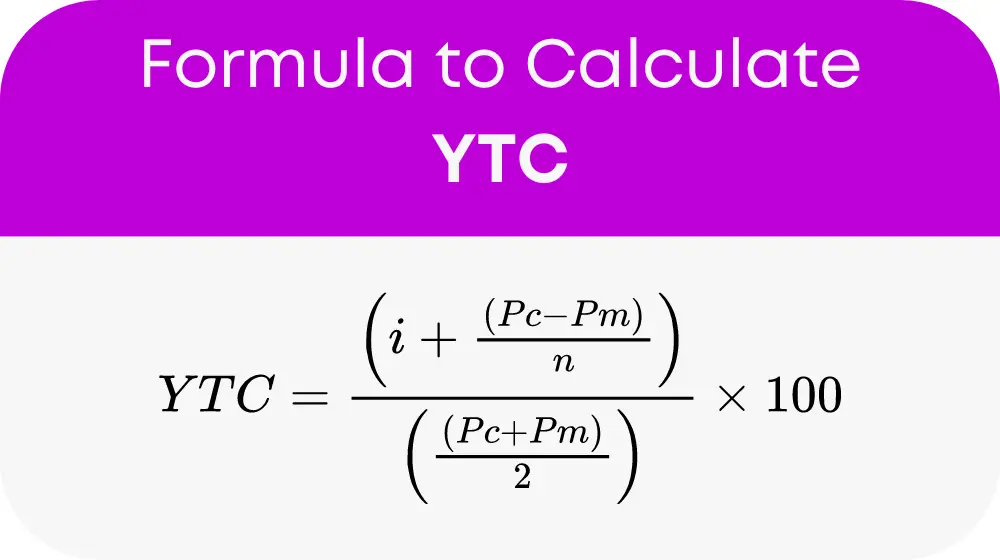The YTC (Yield to Call) Calculator is a powerful financial tool designed to help investors evaluate the potential return on investment for callable bonds. Callable bonds give issuers the option to repurchase the bonds from investors before the maturity date. The YTC Calculator assists investors in determining the yield they would receive if the issuer decides to call back the bond before its maturity.
Formula of YTC Calculator
The formula for calculating Yield to Call (YTC) is as follows:

where:
- YTC = Yield to Call
- i = Annual coupon payment (interest payment)
- Pc = Call price of the bond (price at which issuer can repurchase)
- Pm = Current market price of the bond
- n = Number of years until the call date
Now let’s delve deeper into how the YTC Calculator works and how it can benefit investors.
General Terms Table
| Term | Definition | Importance for YTC |
|---|---|---|
| Callable Bond | A bond that the issuer (company issuing the bond) has the right to repurchase (call back) before its maturity date at a predetermined price (call price). | The potential for early call by the issuer can impact the overall return on investment. YTC considers this call option. |
| Yield to Call (YTC) | The internal rate of return (IRR) an investor expects to receive on a callable bond if the issuer calls it back at the earliest possible call date. | YTC provides a more realistic estimate of return compared to yield to maturity (YTM) for callable bonds. |
| Coupon Payment | The periodic interest payment made by the bond issuer to the bondholder. | Coupon payments are factored into the YTC calculation to determine the total return. |
| Call Price | The pre-determined price at which the issuer can repurchase the bond before maturity. | The call price directly affects the YTC calculation, as it represents the potential redemption value before the bond matures. |
| Current Market Price | The prevailing price at which the bond is currently trading in the secondary market. | The current market price is used in the YTC formula to determine the potential return based on the investor’s purchase price. |
| Maturity Date | The date on which the bond reaches its full term and the issuer must repay the principal amount to the bondholder. | While YTC focuses on the return if called early, the maturity date remains a factor for potential future return if the bond isn’t called. |
Note: This table is for informational purposes only and should not be considered financial advice. Always consult with a qualified financial advisor before making investment decisions.
Example of YTC Calculator
Let’s consider an example to illustrate how the YTC Calculator works:
Suppose you have a callable bond with an annual coupon payment (C) of $50, a call price (Pc) of $1,100, a current market price (Pm) of $1,000, and 5 years until the call date (n). Using the YTC formula:
YTC = (50 + 1100 – 1000) / 1000 / 5 = (1150) / 1000 / 5 = 0.23 or 23%
So, the Yield to Call for this bond is 23%.
Most Common FAQs
A: Simply input the required values – annual coupon payment, call price, current market price, and years until the call date – into the respective fields of the calculator, and click the “Calculate YTC” button to get the yield to call percentage.
A: Yield to Call helps investors assess the potential return on investment if the issuer decides to call back the bond before its maturity. It allows investors to make informed decisions about their bond investments and optimize their portfolio for better returns.
A: Yes, YTC can be higher than the bond’s coupon rate, especially if the bond is trading at a premium in the market. This occurs when the bond’s call price is higher than its current market price, resulting in a higher yield to call for investors.